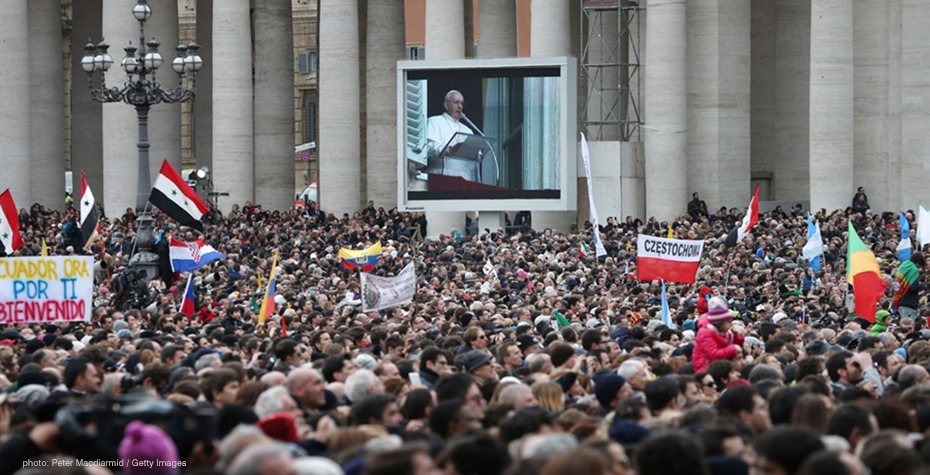Professor Elkins Says New Pope May Mean Changes for the Catholic Church

Professor Sharon Elkins is a scholar of the history of Christianity and contemporary Catholicism. Her work pays special attention to the Virgin Mary and to women’s spiritual writings. Here she offers a reflection on what the newly chosen Pope Francis may do during is papacy.
What will Pope Francis do? If a pope wants to bring about change, he has the authority and organization to make his views matter, and not just for the 1.2 billion Catholics. That helps explain the media blitz, the excitement. In 1994 Pope John Paul II said that the Catholic Church had “no authority whatsoever to confer priestly ordination on women.” Pope Francis could decide it now does. In 1995 at their 34th General Congregation, Jesuits pledged their “solidarity” with women and committed themselves “to listen carefully and courageously to the experience of women. That doesn’t mean the Jesuit Pope Francis will ordain women; it’s unlikely he will, and it’s unlikely he will change the church’s teachings on marriage and procreation. But it was unlikely that Oscar Romero, a conservative when he was appointed archbishop of El Salvador in 1977, would become a champion of the poor. But he did, and was assassinated as a consequence in 1980.
Pope Francis doesn’t need a conversion of heart to become an advocate for the poor. Argentineans have dubbed him the “slum pope” because of his regular visits to the impoverished who live there. He was the superior of his Jesuit province in 1975 when the 32nd General Congregation of Jesuits made an historic commitment to “promote justice” and “enter into solidarity with the voiceless and the powerless.” Although he didn’t become a proponent of “liberation theology”—I’m offering a seminar on it next spring—he advocates its “preferential option for the poor”: the Church must always stand in solidarity with the poor; decisions must be evaluated in light of their impact on the poor; the basic test of any society is its treatment of the marginalized and most vulnerable.
The press has been charmed by Pope Francis’s “man of the people” style, already eschewing some of the trappings of his position. What if he decides to shift the Church’s focus from sexual morality to social justice? How might the bishops respond in this country, where the huge and growing gap between the rich and the poor has finally become a topic of national debate and concern? As a cardinal, he preached against gay marriage, as did the Massachusetts bishops when our state was legalizing it. What if, as Pope Francis, he gets the bishops to preach at least as much about the need to stand in solidarity with the poor?
Francis of Assisi is renowned for his love of the poor and his commitment to peace, reasons Pope Francis has given for choosing his name. Francis of Assisi also is famous for his desire to “repair the church”—a desperate need today—and for preaching to the birds; he’s been named the patron saint of the environment. By adopting his name, Pope Francis is also signaling a “passion for environment justice,” a commitment to help “liberate a suffering creation,” as the Jesuits pledged at their most recent General Congregation, the 35th in 2008. There they also committed themselves to a “dialogue with religions” to learn how “the Holy Spirit is at work all over the world that God loves.”
Having a new pope raises so many possibilities. It’s an exciting time, a hopeful time.
